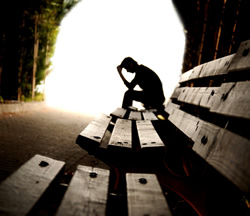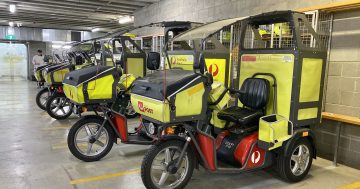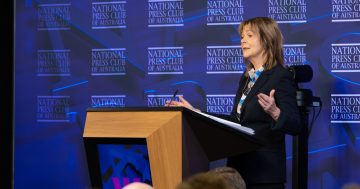An Australian executive coach has blasted the “Bare Minimum Monday” trend sweeping workplaces around as “dangerous” report * Carla Mascarenhas and * Jasmine Kazlauskas.
 An Aussie executive coach has blasted the “Bare Minimum Monday” trend sweeping workplaces around the country, labelling it “dangerous” and a “matter of life or death”.
An Aussie executive coach has blasted the “Bare Minimum Monday” trend sweeping workplaces around the country, labelling it “dangerous” and a “matter of life or death”.
Organisational psychologist Joe Hart said the movement, which promotes a “gentle start” to the working week by allowing workers to work from home and ease into the week, is “inherently dangerous” because it “disguises problems in workplace culture”.
Mr Hart said he coaches managers all the time who think it is a good idea.
“If people aren’t taught how to manage people they generally don’t,” he said.
“They do the bare minimum. To be a good manager you have to be consistent, you have to listen and you have to care and not everyone is good at doing that.”
He said Gen Z should not be blamed for the popularity of Bare Minimum Mondays.
“They don’t know what they don’t know,” he said.
“At the core we all need boundaries, we all need direction and we want our managers to show us the way otherwise we will test the boundaries.”
Mr Hart described the potential ramifications of Bare Minimum Monday as a matter of “life or death”.
“I have always been an advocate if you don’t manage it quickly it is life or death,” he said. “People suffer, they get mental health problems and worst-case scenario they commit suicide.”
Rise of new workplace trends
There is no denying that the pandemic has changed the way many people work forever.
Gone are the days where staff are expected to be in the office all day, every day, watching the clock from their swivel chairs until it hits home time.
Many companies around the world have embraced flexible modes of working, including work-from-home days and the freedom to choose their own hours.
These changes have been praised by staff, and are said to help improve productivity and mental health by helping to achieve an optimal work-life balance.
However, with the days of isolating at home largely over, there have been calls by some higher-ups for things to revert to how they were before Covid.
Some bosses have even forced staff to come back to the office full-time, sparking fierce backlash from those who have adapted to flexible working.
Last week, the finance union launched an eleventh-hour challenge to CommBank’s return-to-office order, which came into effect this week, asking the Fair Work Commission to “intervene”.
Radical new workplace trends are on the rise, including the four-day work week and “quiet quitting”.
One Aussie boss slammed it saying it was creating an “entitlement culture” in the workplace.
Craig Sneesby, managing director at u&u Recruitment Partners, said it was “setting a really poor standard if we accept a mediocre start to the week”.
“I would not expect any high-achieving worker to want to get involved in this trend,” he told news.com.au.
“It creates a space for workers to be lazy and generates a culture of entitlement.
“There is a reason we have a weekend. That is the time to recharge, and do those things such as your washing and cooking.
“These kind of work perks have really gone too far. It just is not sustainable.”
But marketing manager Caitlin Winter recently made waves after speaking about her experience incorporating this new practise into her team.
The 31-year-old told news.com.au that for her, it was a way for staff to take their day at their own pace and to treat themselves with “space and kindness” to set up for a productive week.
She says it has helped boost staff productivity, while also easing the stress and anxiety that can arise on a Sunday night – also known as the “Sunday Scaries”.
‘Bare Minimum Monday’ explained
Start-up founder Marisa Jo Mayes coined the term in a TikTok video, explaining that after spending Sundays mapping out her week ahead only to find herself overwhelmed and falling behind on tasks by Monday, she decided to try something new in 2022.
“I decide on Sunday what are the bare minimum work tasks that I have to accomplish tomorrow and then I only hold myself accountable to finishing those bare minimum tasks and then I get to decide how to spend the rest of my Monday,” she said.
The idea is to focus on just two or three important things on Mondays, while looking after your mental health.
Writing in Insider ,Ms Mayes explained she doesn’t do any work for the first two hours on Monday mornings — no meetings, no technology — while instead focusing on starting the day feeling good.
When she starts work tasks around 10am, she makes sure they’re creative tasks she enjoys. She does that for about an hour, then takes a break.
Written by Carla Mascarenhas, a digital news producer and journalist at The Australian and Jasmine Kazlauskas who has worked in the media since 2017.
The article first appeared in News.com.au











